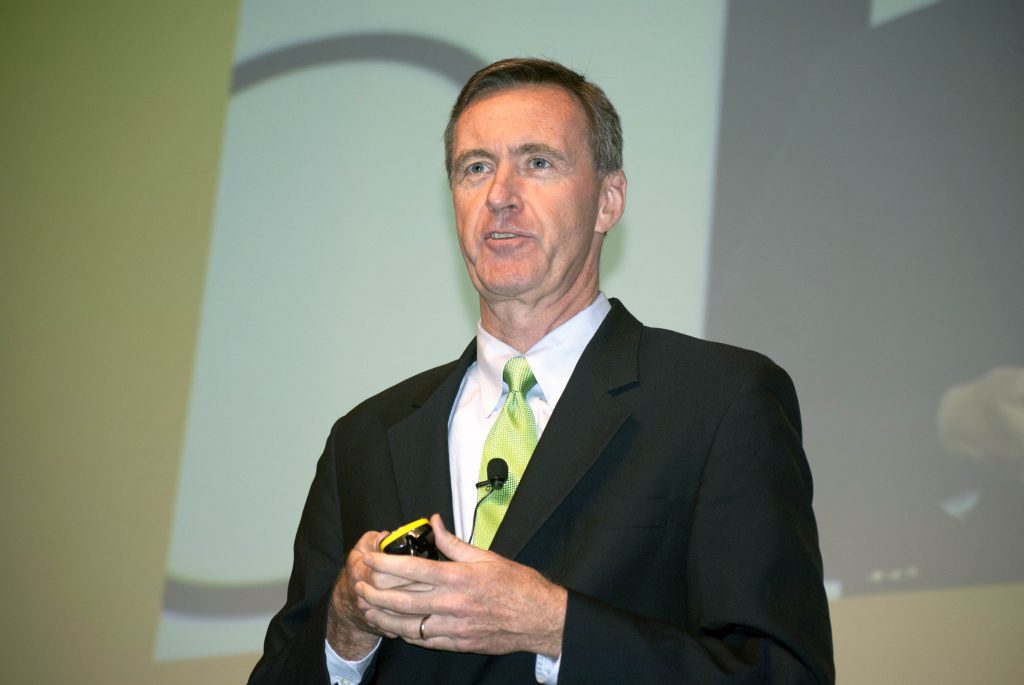
By Caroline Smith
Pope Francis could provide an inspiring guide to leadership for those working in the education system and in wider society, said 2016 National Catholic Education Commission Conference (NCEC) keynote speaker, Chris Lowney.
Mr Lowney, – who is chair of Catholic Health Initiatives in the US, addressed a packed auditorium of teachers, principals and other members of the Catholic Education community in Perth on 20 June, explaining how Christian values could shape great leaders through models like the Holy Father.
He began with the observation that, while people were often readily able to identify examples of good leaders, they often did not include themselves in this notion.
“Humility is important but I would suggest that, when it comes to the concept of leadership, your humility is somewhat misplaced, and that, in fact, the first people you need to think about as leaders are yourselves,” Mr Lowney said.
“This concept of leadership, that it is only associated with the very top of fame and authority, is part of the problem.”
Mr Lowney asked the audience what they considered to make a good leader, and explained how they could enact these traits – which included courage, vision, relating to people, authenticity and being a good listener – in their schools, parishes and civic life every day.
“There wasn’t a single quality that any of you or the most junior people in your institutions could not be role-modelling tomorrow,” he said.
Turning to Pope Francis, Mr Lowney said he could be used as a case study for good leadership, by looking at three examples of his actions, particularly during his time as a priest and bishop in Buenos Aires.
The first example was when the former Jorge Bergoglio told seminarians under his care that they would all have to do communal chores, in the absence of money to pay for outside support – and that he would take on the job of doing laundry in the seminary.
This action won the respect and support of the seminarians by showing that Bergoglio was willing both to serve and to lead others, Mr Lowney said.
The second example was an exhortation to seminarians that they should meet with families in a poor parish, and ‘get their shoes dusty’.
In this way, Bergoglio emphasised the importance of being in touch with the world and the people most affected by his leadership.
Finally, Mr Lowney told how Bergoglio returned to a cathedral to hear a confession, even though he had a train to catch.
This action revealed the importance of not putting your schedule or status above your responsibility to others in a leadership role.